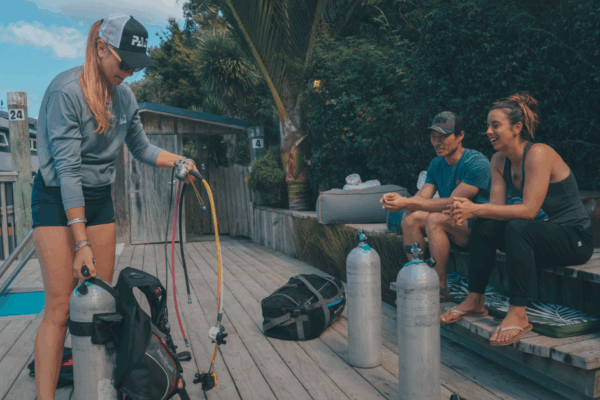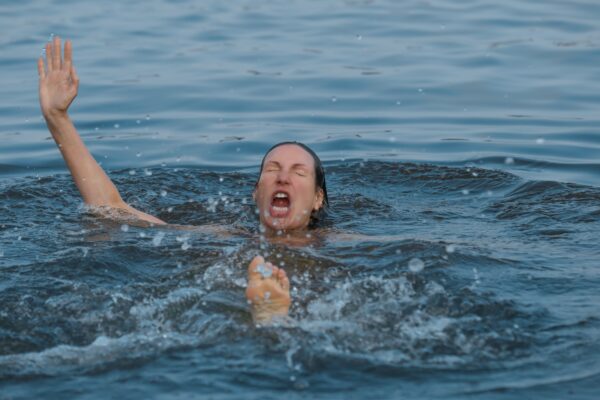
Omwille van duikveiligheid moet je als duikprofessional de allerhoogste prioriteit geven aan controle en het nemen van verantwoordelijkheid voor de duikers die je begeleidt. Dit geldt vooral als je beginnende duikers onder je hoede hebt.
Ondanks de eisen die gesteld worden aan direct toezicht als aangegeven in de Instructor Manual, ontvangt PADI elk jaar ongevallenmeldingen waarbij sprake was van controleverlies over Open Water Diver-cursisten of Discover Scuba Diving-deelnemers. Helaas kan slechts een heel kort moment van onoplettendheid bij de PADI-professional er al voor zorgen dat een in principe beheersbaar probleem (zoals plotselinge paniek tijdens een maskeroefening waarbij de cursist naar de oppervlakte schiet) uitmondt in een verwonding omdat er niet onmiddellijk wordt gereageerd op het probleem.
Alhoewel controle gerelateerde incidenten tijdens de vaardigheidsoefeningen kunnen optreden (zoals een cursist die naar het oppervlak schiet), bevinden instructeurs zich meestal in een positie waarbij zij direct toezicht houden om de vaardigheidsoefening te beoordelen. Ze zijn dan dichtbij de cursist en kunnen gemakkelijk reageren. Tijdens de opstijging of de onderwatertour van een cursusduik, echter, is het lastiger om alle cursisten of deelnemers continu in de gaten te houden.
Tijdens de PADI Open Water Diver-cursus is de onderwatertour tijdens een cursusduik het eerste moment waarop de cursisten minder direct toezicht en controle ervaren. Dit geldt met name als ze de vaardigheden aanleren om als buddyteam zelfstandig te duiken. Vooral onder omstandigheden met slib of beperkt zicht, kan een paar meter afstand het simpele verschil maken tussen cursisten / deelnemers die constant in de gaten worden gehouden of volledig uit het zicht raken. Hoewel het bij dergelijke omstandigheden lastiger is om effectief controle te behouden, kan dit worden bereikt met de juiste aandacht, focus en positionering. De juiste inzet van gebrevetteerde assistenten biedt dan de nodige, extra controle.
Het behouden van controle en verantwoordelijkheid over de duikers onder jouw hoede heeft de hoogste prioriteit als je beginners zoals Discover Scuba Diving-deelnemers en PADI Open Water Diver-cursisten begeleidt. Dit betekent niet alleen dat je gebrevetteerde assistenten inzet, maar ook dat je zorgvuldig nadenkt over waar je iedereen positioneert (of alleen jezelf als je geen assistenten hebt). Het betekent ook dat je je bewust moet zijn dat dit geen statisch proces is; op elk moment tijdens een duik kan het nodig zijn om je werkwijze aan te passen. Bijvoorbeeld wanneer de duikcondities (zoals verslechtering van het zicht) of de omstandigheden (zoals een cursist of deelnemer die wat ronddwaalt of achterop raakt) hierom vragen.
Misschien wel het allerbelangrijkste is dat je constant aandacht en focus hebt. Dit is met name nodig bij duiken op een bekende duikstek waar je misschien wel 100 keer bent geweest omdat je daar eenvoudig iets te nonchalant wordt. Helaas leert de ervaring dat – zelfs als je daar slechts een kort moment geen focus hebt – dit al tragische gevolgen kan hebben.


